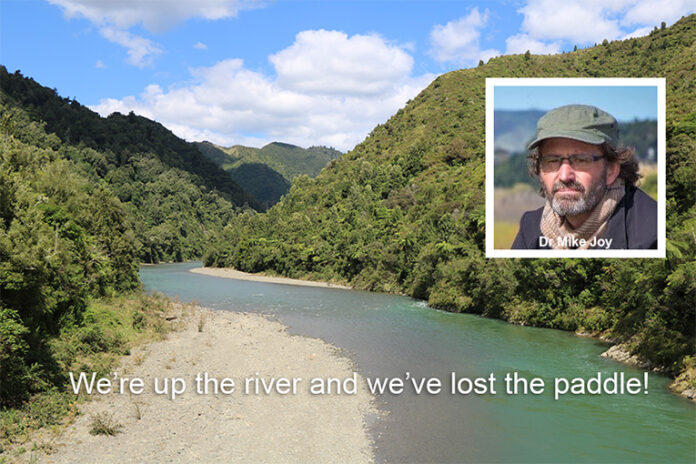New Zealand’s unending quest for faster and more efficient ways to satisfy the traditional diet has come at a serious cost to the environment.
While many Kiwis take pride in the fact that we’ve become one of the world’s major food producers, some of us might well reconsider our views in the face of a major study released today.
The study: ‘Decline in New Zealand’s freshwater fish fauna: effect of land use’, adds up to a damning indictment on how we use the land.
Dr Mike Joy and colleagues from Wellington’s Victoria University compared land use changes and more than 20,000 freshwater fish records since 1970.
The results showed that more than three-quarters of 25 analysed freshwater fish species were in decline. In the case of native species, the drop was even more significant.
But perhaps the most significant issue discovered in the survey shows that species had declined around land dominated by pasture rather than forested or naturally bush-covered areas.
Some of the most significant declines occurred in longfin eel and common bully populations around pasture areas.
There were also recorded drops among redfin and bluegill bully, lamprey, brown trout, shortjaw and giant kokopu, black flounder and torrentfish across all land types.
It was an “appalling figure”, he told the New Zealand Herald, but also now old news – the current proportion was 74 per cent while the global average was only 37 per cent.
“We’ve gone from one species out of every five being in trouble to a situation where three species out of four are staring extinction in the face, and we’ve done it in one generation.”
Given the study’s findings, he said, it was “bizarre” that there was little protection for native fish.
“We need to match land use to soil types and slopes to control runoff, we need major reductions in intensity, and we need to look hard at the way local councils are charged with protecting both the economy and the environment when they apply the Resource Management Act – and yet somehow always end up letting the economy win,” he said.
“We’ve been trying to have our cake and eat it. We need to stop or soon there won’t even be crumbs left.”
The Government is working on new bottom-line rules for regional councils that will remove farming intensity as a “permitted activity” and set tougher levels for nutrients.






